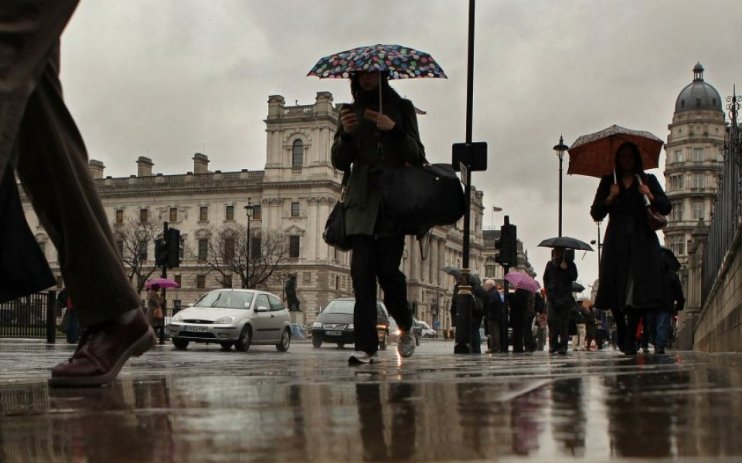UK narrowly avoids recession as penny pinching Brits help GDP grow 0.1 per cent

The UK was not formally in a dreaded recession between October and December, with UK GDP increasing slightly by 0.1 per cent in the fourth quarter of 2022.
Latest figures from the Office for National Statistics show the total Gross Domestic Product (GDP) for the economy marginally improved from an initial estimate of “no growth”.
It was driven by households saving money in wake of Liz Truss’ disastrous mini-budget as the government’s energy support scheme helped millions with the cost of living crisis.
The ONS however predicts that the level of GDP in Q4 was estimated to be 0.6 per cent in the same period of 2019 before the pandemic, a 0.2 per cent revision on initial estimates of 0.8 per cent.
Despite the UK avoiding being in recession between October and December last year, KPMG reported this week a recession is still on the cards for the first quarter of 2023, following last week’s interest rate rise.
With GDP marginally increasing, the figures show real households’ disposable income increased by 1.3 per cent after four consecutive quarters of negative growth.
GDP is now estimated to have increased by 4.1 per cent in 2022, which is an improved revision from the previous estimate of 4.0 per cent. Compared with the same quarter a year ago, real GDP increased by 0.6 per cent.
This comes after inflation was reported to have increased to 10.4 per cent last week, surprising many analysts who expected it to fall.
In wake of the inflation increase and the banking turmoil of the SVB and Credit Suisse rescues, the Bank of England then announced an eleventh consecutive interest rate rise by the Bank of England.
This week, Andrew Bailey, the governor of the Bank of England said he would keep on hiking up rates if inflation continued to increase, and that the UK economy’s banking system was sound.
More to follow
Is the UK really out of the woods?
ONS Director of Economic Statistics Darren Morgan responded to the figures, commenting that “the economy performed a little more strongly in the latter half of last year than previously estimated, with later data showing telecommunications, construction and manufacturing all faring better than initially thought in the latest quarter. “
“Households saved more in the last quarter, with their finances boosted by the Government’s energy bill support scheme.
“Meanwhile, the UK’s balance of payments deficit with the rest of the World narrowed, driven by increased foreign earnings by UK companies, particularly in the energy sector.”
Analysts however couched their optimism with caution, with Pierre-Antoine Dusoulier, CEO at iBanFirst, saying “last quarter’s GDP lifted by 0.1 per cent, but recent data and estimates may mean additional uncertainty in the short-term”.
“Britain has remained resilient within a high-pressure environment, and the uptick in GDP will bode well in terms of investor sentiment.
“However, the UK continues to be the only G7 nation with a GDP below pre-pandemic levels, a clear sign that the UK remains in a volatile situation. Therefore, it’s imperative that we proceed with due caution.”
Meanwhile, Tom Hopkins, Portfolio Manager at BRI Wealth Management, added that the “UK marginally avoided entering a technical recession having shrunk in Q3.”
“Whilst a beating on consensus is always a positive, at only a 0.1 per cent increase, it does show that the UK economy remained relatively stagnant in the fourth quarter. The UK economy is still smaller than it was before the Covid pandemic, the only country within the G7 with this title.
